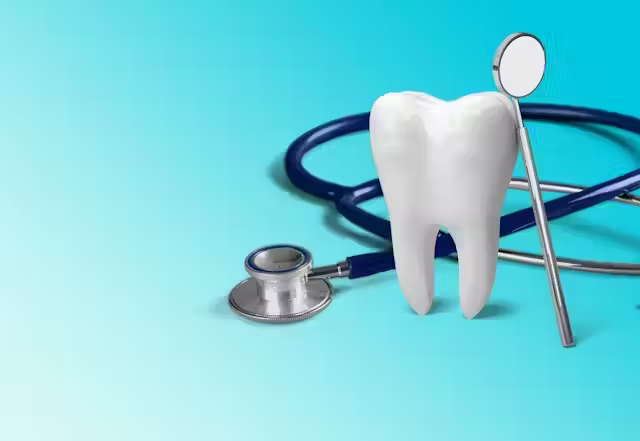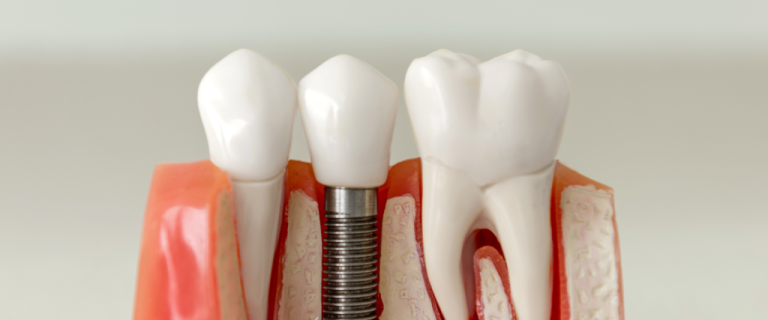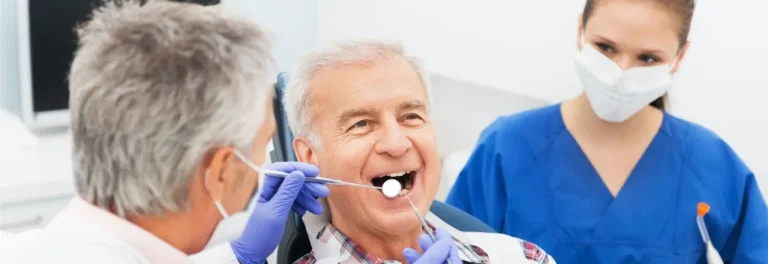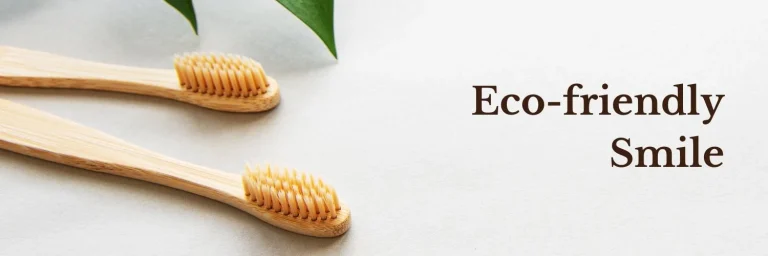Oral Care During Pregnancy: Essential Tips for Expectant Mothers
Pregnancy is an exciting and transformative time, but it also comes with unique challenges—including changes to your oral health. Hormonal shifts, dietary changes, and even morning sickness can impact the health of your teeth and gums, leaving many expectant mothers unsure about how to care for their smile during this critical period. Questions like, Is it safe to visit the dentist? or Why are my gums bleeding more than usual? are common concerns.
The truth is, maintaining good oral hygiene during pregnancy is not only safe but essential for both you and your baby. Poor oral health has been linked to complications such as preterm birth and low birth weight, making it a priority for expectant mothers. This article will guide you through everything you need to know about oral care during pregnancy, from the safety of dental procedures to tips for keeping your teeth and gums healthy. Let’s dive in!
Safety of Dental Procedures During Different Trimesters
One of the most common questions expectant mothers have is whether dental procedures are safe during pregnancy. The answer is yes—with some important considerations. The timing of your pregnancy plays a key role in determining what treatments are appropriate. Here’s a breakdown of what to expect during each trimester:
First Trimester
The first trimester is a critical period for fetal development, and many women prefer to avoid non-essential dental procedures during this time. However, routine check-ups and cleanings are generally safe. If you experience a dental emergency, such as severe pain or infection, consult both your dentist and healthcare provider to weigh the risks and benefits of treatment.
Second Trimester
The second trimester is often considered the safest and most comfortable time for dental care. By this stage, the baby’s major organs have developed, and the risk of complications is lower. This is an ideal time to schedule necessary treatments, such as fillings, crowns, or even deep cleanings, if needed.
Third Trimester
During the third trimester, lying back in the dental chair for extended periods can become uncomfortable and may even lead to issues like supine hypotensive syndrome (a drop in blood pressure caused by the weight of the baby on major blood vessels). While routine cleanings are still safe, it’s best to postpone non-essential procedures until after delivery. If you require urgent dental care, your dentist can take precautions to ensure your comfort and safety.
Key Takeaways
- Routine dental care is safe and important during pregnancy.
- The second trimester is the best time for non-emergency procedures.
- Always inform your dentist that you’re pregnant so they can tailor their approach.
By understanding the safety of dental procedures during each trimester, you can make informed decisions about your oral health while protecting your baby’s well-being. Next, let’s explore some common oral health issues that pregnant women may face.
Common Oral Health Issues During Pregnancy
Pregnancy brings about significant hormonal changes that can affect your oral health. While these changes are normal, they can sometimes lead to discomfort or more serious issues if left unaddressed. Here are some of the most common oral health problems expectant mothers may experience:
1. Pregnancy Gingivitis
Hormonal fluctuations during pregnancy can make your gums more sensitive to plaque, leading to a condition called pregnancy gingivitis. Symptoms include swollen, tender, and bleeding gums, especially when brushing or flossing. If left untreated, gingivitis can progress to more severe gum disease, so it’s important to maintain good oral hygiene and visit your dentist regularly.
2. Pregnancy Tumors (Pyogenic Granulomas)
These are small, benign growths that can develop on the gums, often during the second trimester. While they may sound alarming, pregnancy tumors are not cancerous and usually disappear after childbirth. However, if they cause discomfort or interfere with eating or speaking, your dentist can safely remove them.
3. Tooth Decay
Pregnant women are at a higher risk of tooth decay due to several factors:
- Morning Sickness: Frequent vomiting exposes your teeth to stomach acid, which can erode enamel.
- Cravings: Many women crave sugary snacks during pregnancy, increasing the risk of cavities.
- Dry Mouth: Hormonal changes can reduce saliva production, leaving your teeth more vulnerable to decay.
4. Loose Teeth
High levels of progesterone and estrogen during pregnancy can temporarily loosen the ligaments and bones that support your teeth. While this is usually not a cause for concern, it’s important to report any significant changes to your dentist.
5. Enamel Erosion
If you experience frequent vomiting due to morning sickness, the acid from your stomach can wear down your tooth enamel. Rinse your mouth with water or a fluoride mouthwash after vomiting to neutralize the acid, and wait at least 30 minutes before brushing to avoid further enamel damage.
Key Takeaways
- Hormonal changes during pregnancy can increase the risk of gum disease, tooth decay, and other oral health issues.
- Regular dental check-ups and good oral hygiene can help prevent and manage these problems.
- Don’t ignore symptoms like bleeding gums or tooth pain—consult your dentist for advice.
By being aware of these common issues, you can take proactive steps to protect your oral health during pregnancy. Next, let’s discuss why maintaining oral hygiene is so important for both you and your baby.
Importance of Maintaining Oral Hygiene During Pregnancy
Maintaining good oral hygiene during pregnancy is not just about keeping your smile healthy—it’s also about protecting your overall health and your baby’s well-being. Research has shown a link between poor oral health in pregnant women and complications such as preterm birth and low birth weight. Here’s why oral hygiene should be a top priority during this special time:
1. Protects Against Gum Disease
Pregnancy hormones can make your gums more susceptible to inflammation and infection, increasing the risk of gingivitis and periodontitis (a more severe form of gum disease). Left untreated, gum disease can lead to tooth loss and has been associated with adverse pregnancy outcomes.
2. Reduces the Risk of Tooth Decay
Frequent snacking, cravings for sugary foods, and morning sickness can all contribute to tooth decay. By brushing, flossing, and rinsing regularly, you can remove plaque and bacteria that cause cavities, ensuring your teeth stay strong and healthy.
3. Prevents Oral Infections
Pregnancy can weaken your immune system, making you more vulnerable to infections, including those in your mouth. Maintaining good oral hygiene helps prevent infections that could potentially affect your baby.
4. Supports Overall Health
Your oral health is closely connected to your overall health. For example, untreated gum disease has been linked to systemic conditions like diabetes and heart disease. By taking care of your teeth and gums, you’re also supporting your general well-being during pregnancy.
5. Sets a Foundation for Your Baby’s Health
Did you know that the bacteria responsible for tooth decay can be passed from mother to baby? By maintaining good oral hygiene, you’re not only protecting yourself but also reducing the risk of early childhood cavities for your little one.
Tips for Maintaining Oral Hygiene During Pregnancy
- Brush Twice a Day: Use a fluoride toothpaste and a soft-bristled toothbrush to gently clean your teeth and gums.
- Floss Daily: Flossing removes plaque and food particles from between your teeth, where your toothbrush can’t reach.
- Rinse with Mouthwash: An antimicrobial or fluoride mouthwash can help reduce bacteria and strengthen your enamel.
- Stay Hydrated: Drinking water helps wash away food particles and bacteria, while also combating dry mouth.
- Visit Your Dentist: Regular dental check-ups and cleanings are safe and essential during pregnancy.
Key Takeaways
- Good oral hygiene during pregnancy protects against gum disease, tooth decay, and infections.
- It supports your overall health and reduces the risk of pregnancy complications.
- Establishing healthy habits now can benefit your baby’s oral health in the future.
By prioritizing your oral hygiene, you’re taking an important step toward a healthier pregnancy and a brighter smile. Next, let’s explore how your diet can impact your oral health during this time.
Dietary Considerations for Oral Health in Pregnant Women
Your diet plays a crucial role in maintaining both your overall health and your oral health during pregnancy. What you eat not only affects your teeth and gums but also supports your baby’s development. Here are some key dietary considerations to keep in mind for a healthy smile and a healthy pregnancy:
1. Focus on Nutrient-Rich Foods
Certain nutrients are essential for strong teeth and gums, as well as your baby’s developing bones and teeth:
- Calcium: Found in dairy products like milk, cheese, and yogurt, as well as in leafy greens, almonds, and fortified plant-based milks, calcium helps strengthen your teeth and bones.
- Vitamin D: This vitamin helps your body absorb calcium. You can get it from sunlight, fatty fish, egg yolks, and fortified foods.
- Phosphorus: Found in eggs, fish, lean meat, and dairy, phosphorus works with calcium to build strong teeth.
- Vitamin C: Citrus fruits, strawberries, bell peppers, and broccoli are rich in vitamin C, which supports healthy gums and prevents gum disease.
2. Limit Sugary Snacks and Drinks
Pregnancy cravings often lead to a desire for sugary treats, but frequent consumption of sweets can increase the risk of tooth decay. Bacteria in your mouth feed on sugar and produce acids that erode tooth enamel. If you do indulge, try to:
- Choose healthier alternatives like fresh fruit or yogurt.
- Rinse your mouth with water after eating sugary snacks.
- Brush your teeth about 30 minutes after consuming sweets to remove lingering sugar.
3. Combat Morning Sickness
Morning sickness is a common challenge during pregnancy, but the stomach acid from vomiting can weaken your tooth enamel. To protect your teeth:
- Rinse your mouth with water or a fluoride mouthwash after vomiting.
- Wait at least 30 minutes before brushing to avoid further enamel damage.
- Chew sugar-free gum or suck on sugar-free candies to stimulate saliva production and neutralize acid.
4. Stay Hydrated
Drinking plenty of water is essential for your overall health and your oral health. Water helps:
- Wash away food particles and bacteria.
- Combat dry mouth, a common issue during pregnancy.
- Neutralize acids in your mouth that can cause tooth decay.
5. Avoid Harmful Habits
Certain habits can harm your oral health and your baby’s development:
- Smoking: Increases the risk of gum disease, tooth decay, and pregnancy complications.
- Alcohol: Can lead to developmental issues for your baby and harm your oral health.
- Excessive Caffeine: While moderate caffeine intake is generally safe, excessive amounts can contribute to dry mouth and enamel erosion.
Key Takeaways
- A balanced diet rich in calcium, vitamin D, phosphorus, and vitamin C supports both your oral health and your baby’s development.
- Limit sugary snacks and drinks to reduce the risk of tooth decay.
- Take steps to protect your teeth from the effects of morning sickness.
- Stay hydrated and avoid harmful habits like smoking and excessive alcohol or caffeine consumption.
By making smart dietary choices, you can support your oral health and overall well-being during pregnancy. Next, let’s wrap up with some final thoughts and actionable tips for expectant mothers.
Conclusion: Prioritizing Oral Health for a Healthy Pregnancy
Pregnancy is a time of joy and anticipation, but it also requires extra attention to your health—including your oral health. Hormonal changes, dietary shifts, and other pregnancy-related factors can increase the risk of gum disease, tooth decay, and other oral health issues. However, with the right knowledge and habits, you can protect your smile and support your baby’s development.
Key Takeaways for Expectant Mothers
- Dental Care is Safe and Important: Routine dental check-ups and cleanings are safe during pregnancy, especially during the second trimester. Always inform your dentist that you’re pregnant so they can tailor their care to your needs.
- Be Aware of Common Oral Health Issues: Pregnancy gingivitis, tooth decay, and enamel erosion are common but manageable with proper care.
- Maintain Good Oral Hygiene: Brush twice a day, floss daily, and use mouthwash to keep your teeth and gums healthy.
- Eat a Balanced Diet: Focus on nutrient-rich foods that support oral health, and limit sugary snacks and drinks.
- Stay Hydrated and Combat Morning Sickness: Drink plenty of water and take steps to protect your teeth from the effects of vomiting.
Final Tips for a Healthy Smile During Pregnancy
- Schedule a dental check-up early in your pregnancy to address any existing issues.
- If you experience any oral health concerns, such as bleeding gums or tooth pain, don’t hesitate to consult your dentist.
- Establish healthy habits now to set a positive example for your child’s oral health in the future.
By prioritizing your oral health, you’re not only taking care of yourself but also creating a healthier environment for your growing baby. Remember, a healthy smile is an important part of a healthy pregnancy. Congratulations on this exciting journey—and here’s to a bright, healthy future for you and your little one!
If you’re pregnant or planning to become pregnant, schedule a dental check-up today to ensure your oral health is in top shape. Share this article with other expectant mothers to spread the word about the importance of oral care during pregnancy!
FAQs
Is it safe to visit the dentist while pregnant?
Yes, routine dental check-ups and cleanings are generally safe, especially during the second trimester. Always inform your dentist that you are pregnant.
Why are my gums bleeding more during pregnancy?
Hormonal changes can make your gums more sensitive to plaque, leading to pregnancy gingivitis, which causes swollen and bleeding gums.
What is the best trimester for dental work?
The second trimester is typically considered the safest and most comfortable time for necessary dental procedures.
Are dental X-rays safe during pregnancy?
Dental X-rays are generally safe if necessary, but your dentist will take precautions to minimize radiation exposure, such as using a lead apron.
What can I do about morning sickness and its effect on my teeth?
Rinse your mouth with water or fluoride mouthwash after vomiting, and wait at least 30 minutes before brushing to protect your enamel.
How does my diet affect my oral health during pregnancy?
A diet high in sugary snacks can increase the risk of tooth decay. Focus on nutrient-rich foods like dairy, leafy greens, and foods rich in Vitamin C to support strong teeth and gums.
What are pregnancy tumors?
Pregnancy tumors (pyogenic granulomas) are small, benign growths that can develop on the gums during pregnancy, often in the second trimester. They are not cancerous and usually disappear after childbirth.
Why is maintaining good oral hygiene important during pregnancy?
Poor oral health has been linked to complications such as preterm birth and low birth weight. Good oral hygiene protects against gum disease, tooth decay, and infections.
Can I take care of loose teeth during pregnancy?
High levels of progesterone and estrogen during pregnancy can temporarily loosen the ligaments and bones that support your teeth. While this is usually not a cause for concern, it’s important to report any significant changes to your dentist.
What are some essential tips for oral care during pregnancy?
Brush twice a day with fluoride toothpaste, floss daily, use mouthwash, stay hydrated, maintain a balanced diet, and visit your dentist for regular check-ups.







